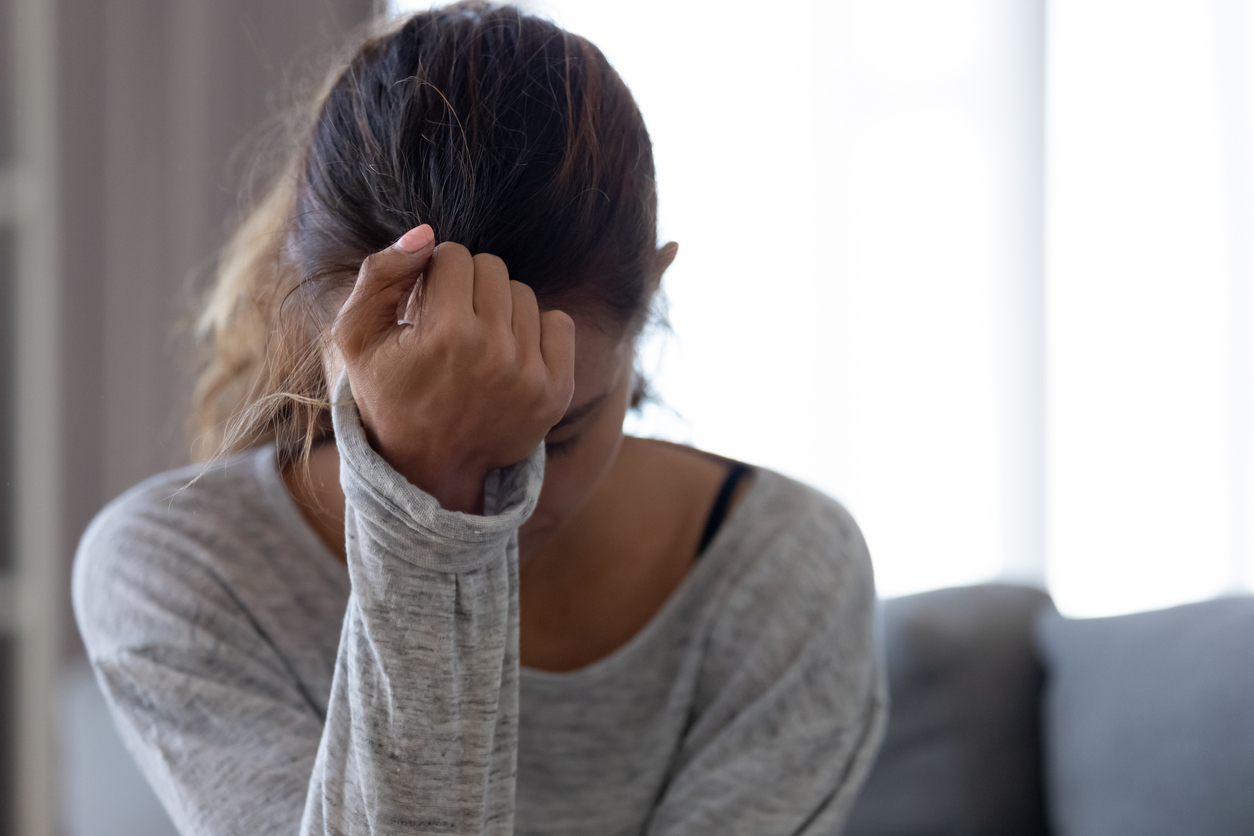For women with Polycystic Ovarian Syndrome (PCOS) suffering from certain physical conditions like irregular menstrual periods, increased hair growth and obesity are well established. However, over 30%-40% of women with PCOS also suffer from poor mental health, namely depression. But, believe it or not, many such cases of depression amongst women with PCOS go ignored, unnoticed, undiagnosed or misdiagnosed. Like every other health condition, the sooner a symptom is picked up or a diagnosis is made, the stake of management or cure of the condition is higher.
What depression can feel like
What it feels like being depressed is often unexplainable. One does not know why they are feeling so low. Depression goes beyond than just feeling sad and may be projected in more than just a few ways.
Let’s go on to explore the various and most obvious signs and symptoms that show up during PCOS depression and how they affect the mental and emotional well being of the patient.
- Physically, one may notice a change or a disruption in the usual eating and/or sleeping patterns
- Socially, it may affect relationships
- Psychologically, one may feel highly demotivated, unenthusiastic (even for activities that were previously enjoyed and looked forward to), worthless or sad, low, unhappy for no apparent known reason
In a nutshell, feeling low or down for prolonged periods of time with no evident cause, especially if you have PCOS should not be sidelined. There is a high possibility of it being diagnosed as depression and will require intervention from the doctor, mental health specialist, well-wisher or care-giver.
Deep diving into the signs and symptoms of PCOS depression
While prolonged weeks or months of sadness or lowered energy levels are the most obvious and most common signs of depression, others such as physical pain or mood swings also make the cut. Instead of being reluctant to acknowledge them as possible signs of depression, it’s best to take them seriously and begin treating the root cause of the problem. Depression can often lead to weight gain, binge-eating and no will to perform any structured physical activities – all of which can adversely affect the pre-existing condition of PCOS.
Here is a list of other common, yet unrecognised signs of PCOS depression:
- Feeling panicky or anxious often
- Having drastic mood swings – from overjoyed to sad or angry to mellow or excited to uninterested over short durations of time
- Finding it difficult to focus and concentrate on tasks even for those that last short time periods
- Experiencing fatigue, tiredness and exhaustion regardless of performing any physical activity
- Motivation is on an all time low, with little to no will to do any activities, especially those that were previously enjoyed
- Ignoring one’s self appearance and neglecting personal well-being like not cutting or combing nails and hair or wearing unironed clothes
- Feeling stressed without any known reason
- Fearing going out in public or having interaction with others or being in a social setting
- Feeling lonely and helpless regularly
- Having a poor appetite and possibly avoiding or skipping meals
- Disturbed sleep cycle with only a couple of hours of deep sleep or sleeping for longer durations without the will to wake up and still waking up tired
Why is depression a common occurence amongst women with PCOS?
Now that we’ve established that certain signs cannot be disregarded, let’s go on to understand why depression is a common occurance amongst women with PCOS. While the imbalance of hormones, increase of insulin and the prevailing metabolic conditions of PCOS could be blamed, more often than not, the high levels of androgens (male hormones) are the primary cause of increasing mood disorders amongst women.
Going beyond the hormonal imbalances, the inherent influence of PCOS itself on the body like – increased growth of body hair, skin breakouts and weight gain can severely affect the confidence and self perception of a woman leading to a significant negative impact on emotional and mental wellbeing, potentially leading to depression.
Here is how you can improve your mental health with PCOS
If you, or someone you know has prolonged periods of feeling low, don’t hesitate from seeing an expert to get the professional help you need. Depression can be managed through multiple available methods, ranging from individual therapy, support groups, allopathic medication to alternative and integrative medicine.
Some women can benefit from just a few sessions of counselling, whereas others might benefit from the support of ongoing counselling. Apart from getting medical support, there are also a range of self-care techniques and ways you can take care of your anxiety.
1. Expressing your thoughts and feelings with someone close to you 2. Being active by performing an exercises you enjoy doing
3. Participating in hobbies or other leisure activities that help you unwind
4. Practicing relaxation and mindfulness techniques
5. Following a healthy diet that is balanced, wholesome and nutritious
6. Getting atleast 7-8 hours of quality sleep each night
It is important to realise that PCOS goes beyond just metabolic and hormonal health. It comes with its own bag of mental health disorders, one of them being depression. Know that you are not alone, what you’re feeling and going through is reality, but with the right help and guidance it is also very treatable.
Disclaimer: Content on Veera is provided for informational purposes only and is not intended as medical advice, or as a substitute for medical advice given by a physician



















